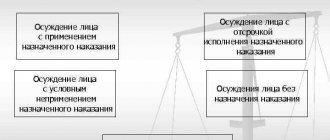Extreme caution must be used when handling fire or other hazardous objects (such as chemicals) near trees or bushes. Otherwise, your actions may be qualified as criminal offenses under Article 261 of the Criminal Code of the Russian Federation. Let us analyze the judicial practice under Article 261 of the Criminal Code of the Russian Federation and its features.
What are forest plantations
In dictionaries, this concept is interpreted as the totality of all woody and non-woody plants that have gone through the same history of development in homogeneous forest conditions.
They are divided into different categories:
- artificial (forest plantings of certain species, through which wood with specified characteristics is obtained);
- plus (the most highly productive, high-quality and stable plantings for forest growing conditions);
- protective (artificial plantings in the form of arrays and strips to protect canals, settlements or roads);
- dead (areas where plantings died due to massive damage), etc.
For loss of confidence in dealing with money and goods - clause 7 of Art. 81 Labor Code of the Russian Federation
Employees are responsible for the money and goods they work with. For shortages, shortchanging customers, selling without receipts and outright theft, you can be fired.
Shortages are documented with an inventory, other violations are documented with acts and memos. An explanation is taken from the employee and dismissed no later than a month after the misconduct is discovered.
How to correctly draw up full liability agreements
The essence of Art. 261 of the Criminal Code of the Russian Federation with comments
Part 1 of this article deals with offenses in the field of destruction or damage to forest plantations due to careless handling of fire and other sources of increased danger.
Reference . Destruction means the complete burning of the entire forest area or other plantings that are not included in the forest fund, and damage means the partial burning of the specified vegetation.
Sources of increased danger include:
- power lines;
- different types of transport;
- explosives, etc.
According to Part 2 of Article 261 of the Criminal Code of the Russian Federation, punishments are imposed for the acts described in its first part, but in cases where they entailed causing major damage.
Part 3 of Article 261 of the Criminal Code of the Russian Federation deals with the destruction or damage of forest plantations as a result of arson, pollution or other negative impacts.
Arson is the deliberate actions of a person leading to the ignition of a forest.
Other methods of negative impact are the use of explosives or chemically hazardous substances, the massive spread of diseases among animals or plants, etc.
Part 4 of Article 261 of the Criminal Code of the Russian Federation contains a list of penalties for the offenses specified in Part 3 of the same article, but in cases where their consequence was the infliction of major damage.
The note to Article 261 of the Criminal Code of the Russian Federation specifies that major damage means amounts from 50,000 rubles. Damage is calculated according to the rates and methods specified in Decree of the Government of the Russian Federation No. 388 of May 21, 2001.
When calculating damage, the following factors are taken into account:
- the cost of growing new forest crops;
- price of cleanup work;
- fire extinguishing costs, etc.
For absenteeism and alcohol - clause 6 of Art. 81 Labor Code of the Russian Federation
Violations of discipline can be serious. For one rude thing you can be fired immediately. This is also a disciplinary sanction. But there is no need to save the previous ones.
All gross violations are recorded in paragraph 6 of Art. 81 Labor Code of the Russian Federation. These include absenteeism and alcohol or drug intoxication at work.
A gross violation is documented in the same way as a simple violation. A memo or act, explanation, order of dismissal no later than a month from discovery.
Absenteeism
Absenteeism is when a person does not come to work or is absent for four hours in a row.
There is no good reason for absenteeism: illness, accident, death of a relative. Time off and vacations without the request of the manager are also considered absenteeism. This is explained in paragraph 39 of the Resolution of the Plenum of the Armed Forces of the Russian Federation dated March 17, 2004 No. 2.
Example of absenteeism:
A specialist at a bank on the eve of a working day at 11:30 pm asked the director for a day off via a WhatsApp message. Silence was considered consent. When she returned to work, she was given absenteeism and fired.
The specialist appealed the absenteeism, but the court did not return the job.
The time off was not approved, which means it’s absenteeism. There is an absence from work report and a memo from the director, an explanation, an order. We met the deadlines. Dismissal for absenteeism is fair and documented correctly - case 33-12011/2019.
Intoxication
Alcohol and drug intoxication must be proven.
The act with witnesses is suitable. The court believed the witnesses that the store clerk was drunk behind the counter - case No. 33-5383/10.
The stronger option is a breathalyzer or a doctor’s report. For example, a breathalyzer helped in a dispute about the dismissal of a trolleybus driver - case No. 2-3639/2018. There is a possibility - take a test or call a doctor.
Crimes under the article
According to Article 261 of the Criminal Code of the Russian Federation, destruction or damage to forest plantations is considered an offense in two cases: careless handling of fire and any intentional actions, therefore there are two elements of crime.
The compositions are similar in that both are material in their designs. Offenses will be considered completed from the moment of destruction or damage to the forest.
According to Part 1 and Part 2 of Article 261 of the Criminal Code of the Russian Federation
The objective side of the offenses is the destruction or damage of forest plantations due to careless handling of fire or other objects of increased danger.
The subjective side is a careless form of guilt. It is expressed in two ways:
- the citizen does not understand the criminality of his actions, but still allows them;
- he foresees the onset of negative consequences of his actions, but does nothing to eliminate them (due to frivolity or negligence).
According to Part 3 and Part 4 of Article 261 of the Criminal Code of the Russian Federation
The objective side of the destruction or damage to forest plantations is their deliberate arson or other actions that can lead to the destruction of plantations.
The subjective side is the intent in the actions of a citizen. He knows about the danger of the offenses he commits, knows about their negative consequences, but still allows them and even wants such a result to occur.
Reduction of staff - clause 2 of Art. 81
The essence of staff reduction is as follows. The employer says: “I don’t need so many workers anymore. I'll fire you too. I give time to find a job, help with money and fire.”
Reduction is suitable when the company has fewer orders. For example, the hotel saw a decrease in the flow of tourists and eliminated one administrator position - case No. 33-1805/2013.
How many employees to keep is up to the entrepreneur. I wanted to and cut it. This is stated in the Determination of the Constitutional Court of the Russian Federation dated September 24, 2012 No. 1690-O.
The reduction procedure is as follows. The employee is given a personal notice of layoff, and he works for another two months for a salary under Art. 180 Labor Code of the Russian Federation. Two months later they issue a dismissal order. Before the layoff, the person is offered other vacancies in the company, if any.
The dismissed person is paid two average earnings according to Art. 178 Labor Code of the Russian Federation. If in a month he does not find a job and brings a certificate from the employment center, they add another one. If the employee agrees, they are fired earlier with an increased salary.
Those who perform worse are laid off first. For example, if the bartender has less income than the shift worker, he is fired. If everyone works the same, the employee without dependents is fired. Details about the selection of people for layoffs are written in Art. 179 Labor Code of the Russian Federation.
Objects, subjects and subjects of crime
They coincide regardless of what part the acts are qualified for, so we will not consider them separately.
The subject of crimes is forests and other plantings. They cannot be shrubs or trees that are located on agricultural land, garden or summer cottage plots.
Attention . In case of damage or liquidation of such vegetation, the acts are qualified under Article 167 (deliberate damage or destruction of property) and Article 168 (the same actions, but committed through negligence) of the Criminal Code of the Russian Federation.
Object – relations in the field of ensuring environmental safety of people.
The subject is a mentally healthy citizen who was 16 years old at the time of the crime.
For failure to fulfill labor duties and discipline - clause 5 of Art. 81 Labor Code of the Russian Federation
Each employee is obliged to fulfill job duties and not violate discipline.
Responsibilities are written in the employment contract and job description. For example, a salesperson advises clients, accepts money, and sends requests to suppliers.
Discipline is working hours, dress code, rules of communication with colleagues. Discipline is stated in the employment contract and internal regulations (if applicable).
For violation of duties and discipline, a reprimand or reprimand is given. The seller did not return the check - a reprimand, was late for a shift - a reprimand. This is called disciplinary action under Art. 192 Labor Code of the Russian Federation.
When two or more reprimands and comments have accumulated, the employee can be fired. The reason is called “for repeated failure by an employee to fulfill his job duties without good reason.” Suitable for dismissal for poor work, rudeness with clients, lateness.
To be dismissed, you must file a disciplinary sanction at least twice within a year. This is done according to Art. 193 Labor Code of the Russian Federation:
- Record the employee’s misconduct - with a memo about being late, an act of failure to fulfill an obligation.
- Get the employee to explain why this happened. The request is submitted against signature. Then they wait two days, if the person is silent, they issue an act of refusal.
- Issue an order for a reprimand or reprimand.
The order is made no later than one month from the discovery of the offense and six months from its commission. Vacation and sick leave time is not counted. The employee is notified of the order within three days. If he rebels, he makes an act of refusal. If you violate the deadlines, the collection will not work.
Example: a manager collected an employee’s mistakes and fired him
A full-time developer did not deliver the work on time and disrupted the delivery of the entire department’s project. He received a reprimand. Then he left work 40 minutes early - a reprimand.
The company collected two orders and fired for failure to fulfill duties. It was not possible to challenge it - case No. 33-19370.
Article about employee responsibility
Responsibility measures
If the offense was qualified under Part 1 of Article 261 of the Criminal Code of the Russian Federation, then the following measures are taken:
- payment of a fine in the amount of 200,000 to 400,000 rubles or salary for 1-2 years;
- compulsory work for 480 hours;
- correctional labor for 2 years;
- forced labor for 3 years;
- imprisonment for the same period.
When determining an act under Part 2 of Article 261 of the Criminal Code of the Russian Federation, the following penalties are imposed:
- a fine of 300,000 to 500,000 rubles or 2-3 years’ salary;
- compulsory work for 480 hours;
- correctional labor for 2 years;
- forced labor for 4 years;
- imprisonment for the same period.
If the act is classified under Part 3 of Article 261 of the Criminal Code of the Russian Federation, the measures are tightened:
- payment of a fine in the amount of 500,000 to a million rubles or salary for 3-4 years;
- imprisonment in a colony for 8 years with payment of a fine in the amount of 200,000 to 500,000 rubles or salary for 1.5-3 years (the latter sanction is optional).
The most severe punishments are determined in accordance with Part 4 of Article 261 of the Criminal Code of the Russian Federation:
- a fine in the amount of one million to 3 million rubles or 4-5 years’ salary;
- imprisonment for 10 years with a fine of 300,000 to 500,000 rubles or 2-3 years' salary (this sanction is imposed at the discretion of the judge).
A verdict under Article 261 of the Criminal Code of the Russian Federation is passed by the court after considering the case and conducting an investigation into it.
In what cases is liability not imposed?
It will be possible to completely avoid liability only if it is established that arson or careless handling of fire took place not through the fault of a specific person, but as a result of some natural phenomena or man-made disasters.
By agreement of the parties - Art. 78 Labor Code of the Russian Federation
By agreement of the parties - when the employee and employer agree to part ways.
You can offer the employee an agreement with mutual benefit. For example, an employer pays a small bonus, but an employee hands over documents to colleagues and doesn’t come back tomorrow.
The method is convenient: it gets rid of the employee without unnecessary paperwork and procedures. You cannot refuse a signed agreement, unlike a statement of your own free will (there are two weeks to change your mind). But there are still risks.
The court will cancel the agreement if the employee says that he was pressured. Bring witnesses or show correspondence. Therefore, it is better to offer conditions in writing.
How to file a dismissal
On the last day of work, personnel documents are drawn up and salary arrears are paid. Do it as it is written in Art. 84.1 and 140 Labor Code of the Russian Federation:
- Print the dismissal order with the reason and an article from the Labor Code. The day after the order, the person no longer works for you.
- Let the employee read the order and ask him to sign the text. This is an important point that is often forgotten.
- Make an entry in your work book.
- Give your salary and compensation for vacation, otherwise penalties will accrue.
- Give out the work book, ask to sign for receipt.
- Copy the order to the employee at his request.
Article: how to make an entry in a work book
The article is current as of 01/28/2022





